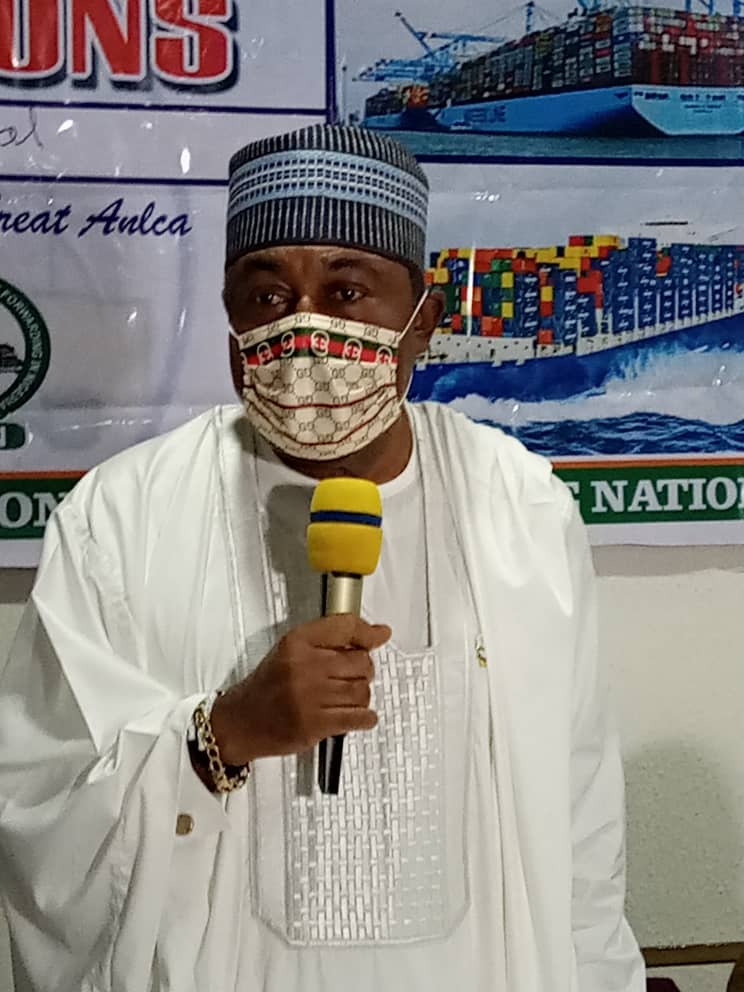Blue economy: Maritime is low hanging fruits for Nigeria’s economy -Nwabunike
…advocates community supported security to end maritime insecurity
Chidi Ogbuokiri
President, Association of Nigeria Licensed Customs Agents (ANLCA), Mr. Iju Tony Nwabunike has suggested pathways for Nigeria’s sustainable economic diversification amid insecurity.
Speaking on Friday at the 8th edition of Nigeria Annual Transport Lecture in Lagos, Nwabunike said blue economy should be at the top of discourse at a time Nigeria is no longer getting enough funds as she desired from crude, the mainstay of the economy.
He noted that the 853km long Nigeria coastline runs through seven of the southern states of Nigeria from Lagos, through Ondo, Delta, Bayelsa, Rivers, Akwa Ibom and Cross Rivers bordering the Atlantic Ocean, saying Nigeria should be looking beyond oil for the nation’s economic sustainace.
“In one of my public messages, I postulated recently that as the second highest revenue earner, Nigerian maritime industry is the nation’s economic low hanging fruit capable of cushioning the temporary effect of inadequate oil revenue.
“We are rich in maritime resources, rich in oil which is transported by ships but in the recent past, we were tagged as the poverty capital of the world. This is ironically our reality, which we can change for better.”
“National Petroleum Corporation (NNPC) had declared that it would deduct N112 billion from oil and gas proceeds for April to ensure continuous supply of petroleum products to the country and guarantee energy security. The implication includes not having oil revenue for the Federal Government to share with the states and local governments.”
He said this situation is premised on the hike in crude oil prices on the deregulated downstream sector and the need for uninterrupted supply of petroleum products to citizens
According to him, even if oil prices rise astronomically now to $200 per barrel, Nigeria is a country in debt and still looking for loans to fund the 2021 budget as at May this year.
“What this tells us is that oil money alone cannot satisfy our national thirst for funds. Federal, states and local governments struggle to pay salaries while pension and other welfare liabilities are almost unattended to in many parts of the country,” he said.
Security threat on blue economy
According to Nwabunike, insecurity has dealt a deadly blow on the maritime sector and its economy. Maritime piracy, robbery and other criminal activities have contributed in slowing down the maritime economy, he said.
“Our maritime domain suffers the setback of general insecurity either due to lack of priority attention, inadequate security platforms like patrol boats, aircrafts and supporting technology gadgets and lesser number of personnel to implement or enforce adherence to security on water.
“Maritime piracy, sea robbery, oil theft, kidnapping on water or through water have been copiously recorded in the domain that should be contributing to our economic well being.
“I am almost tempted to say that our Exclusive Economic Zone is no longer exclusive to us because the people I choose to call maritime bandits are threatening our space.”
Nwabunike said the Federal Government (through Nigerian Maritime Administration and Safety Agency) is rising to the occasion with planned deployment of advanced security assets to energise our blue economy. I believe it will work if consciously sustained, saying it is a anticipated that this move will go a long way in fighting piracy and other maritime crimes in the Gulf of Guinea and the country’s entire territorial waters.
He said safety of vessels; cargoes and crews on our waters have direct impacts on our overall economy since the maritime sector is critical for Nigerians in the areas of trade, investment, employment and recreation.
“While government is procuring platforms and training personnel for maritime security, I wish to advocate that a community supported security approach will be more productive.
“Government should as a matter of policy involve youths of coastal communities in a kind of Civilian Task Force to support the Navy and other security agencies in nipping our maritime insecurity in the bud.
“Further development of our maritime potentials will be a bold step towards economic diversification for job creation, addressing insecurity and positioning our ports for hub status in the West and Central African regions,” he stressed.
Meanwhile experts at the Annual Transport Lecture have said that a safer and more secure maritime sector will open a vista of economic improvements for us a country
They said most thriving businesses in the nation’s maritime domain are forced to spend a good part of their profits on the provision of security. Where such private arrangements are not made, “oil, construction and other workers operating or transiting through waters face risk of kidnap, robbery or murder,” they said.


